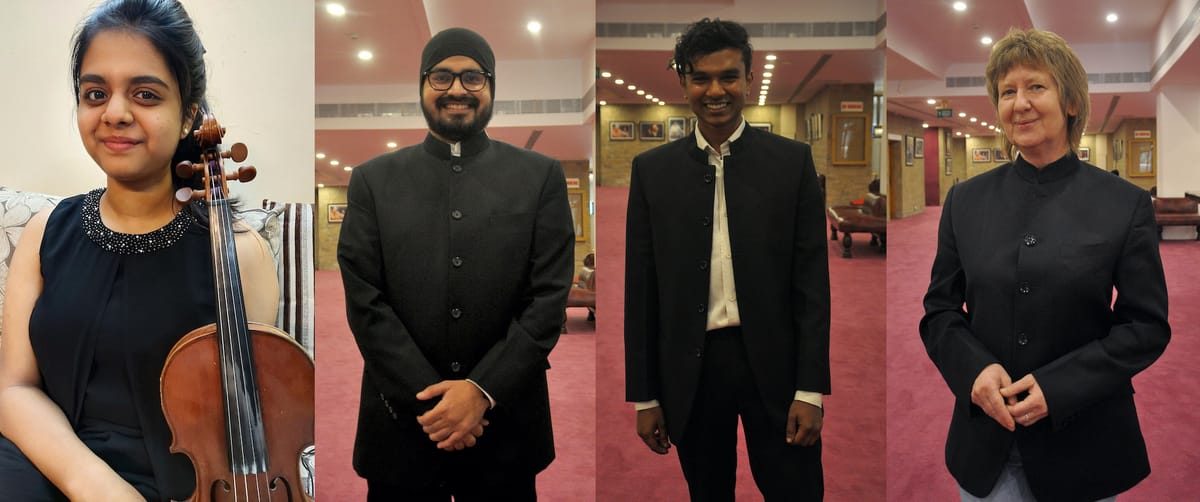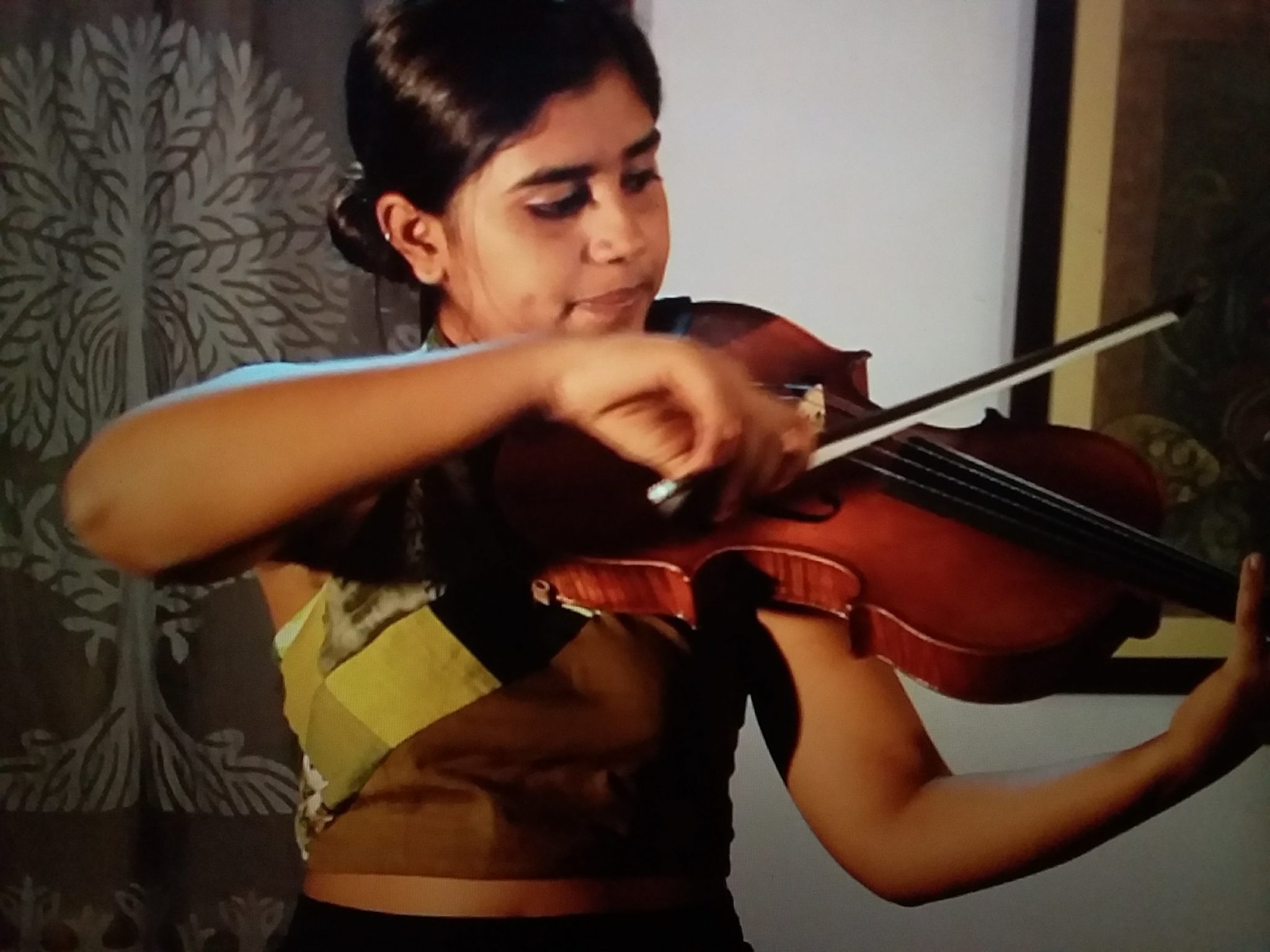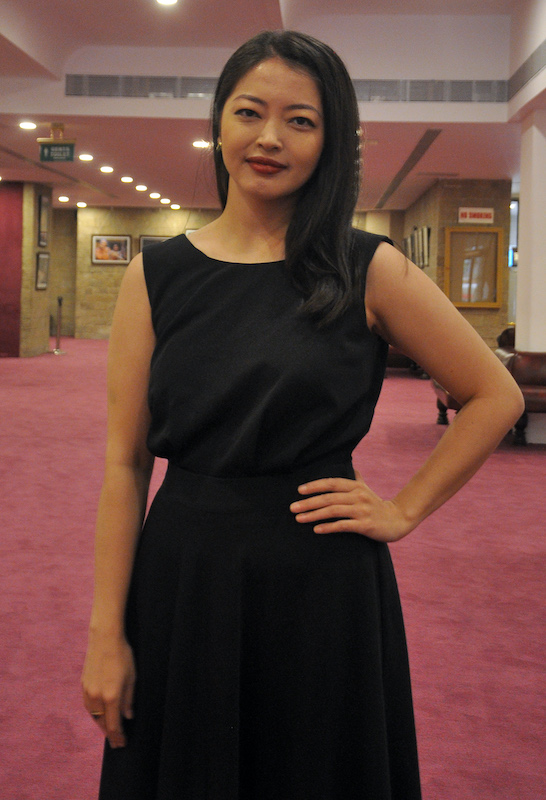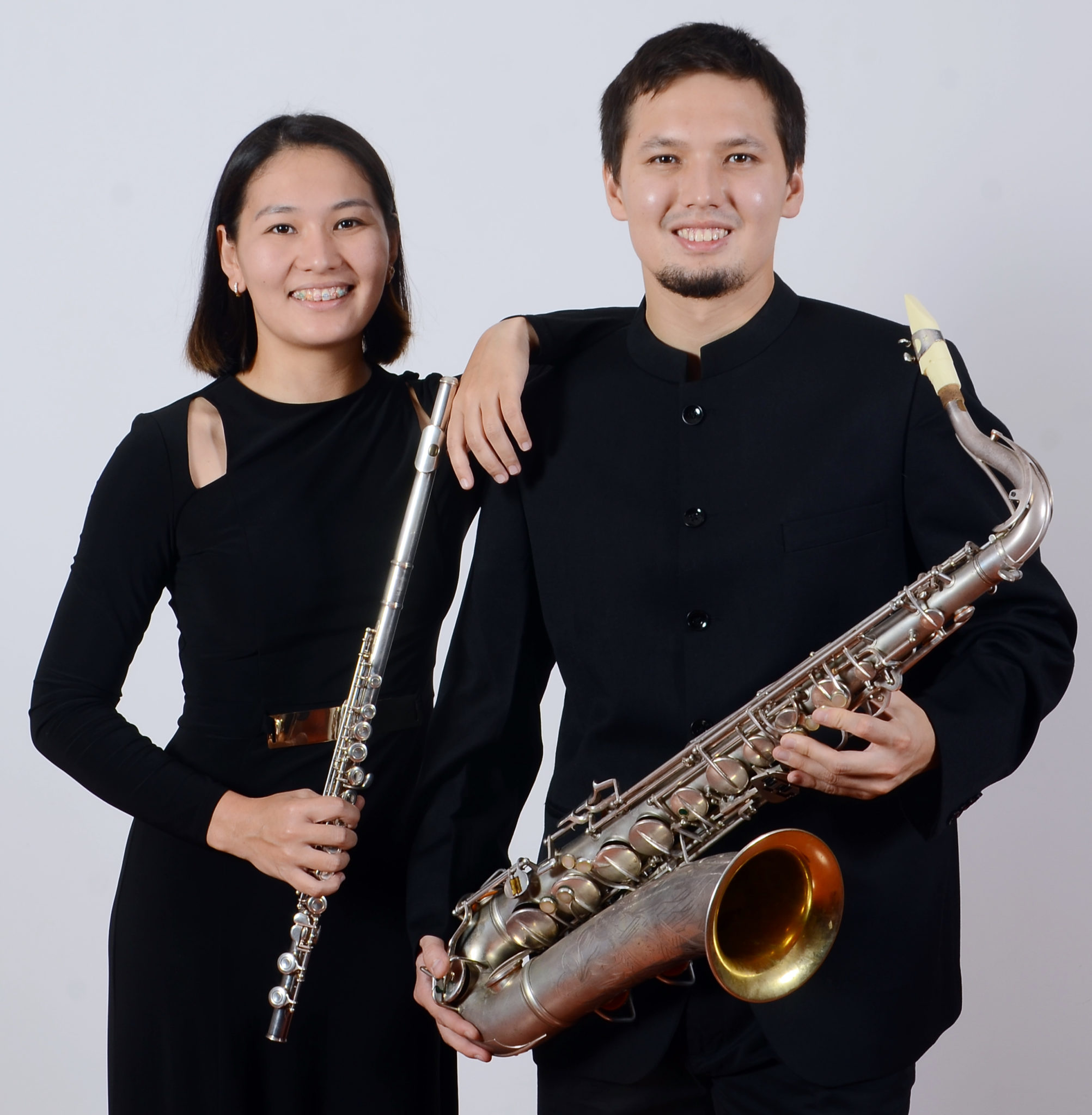Bigger and Better

There are several developments in the offing at the NCPA as the Symphony Orchestra of India welcomes a new double bass player, two teachers and three apprentice players into the fold. By Beverly Pereira
An orchestra, as it were, is a microcosm of perfection—a group of musicians intimately working together to reach a harmonic understanding among each other. This understanding develops over time, but, ever so often, there arises a need for new recruits. It could be because an older player has left the orchestra. Or, perhaps, the orchestra is willing itself to grow into something larger and thus requires additional players. And so begins the new player’s journey towards finding their voice in this microcosm as they harmonise with an entirely new structure, all the while navigating music that will eventually unite the player with the orchestra as a whole.
In the case of the Symphony Orchestra of India (SOI), a greater Indian presence among its musicians has been integral to the vision of NCPA Chairman Mr Khushroo N. Suntook since he co-founded the SOI with Marat Bisengaliev in 2006. It has been no mean feat, but with unwavering focus, it is beginning to bear fruit. The pandemic may have stalled live performances, but the hunt for orchestral players did not stop. “We have been scouting for talent all over India, from Nagaland to Tamil Nadu. What we have been looking for is that the players should have achieved a certain degree of technique and a certain level of understanding of the genre they are playing,” says Mr Suntook.
The hunt has also been supported by the SOI’s long-time collaborators and impresarios, and over the past few months, new musicians have been selected to join the SOI. For one, there is a new double bass player on board. Jasiel Peter from Bangalore arrived in Mumbai last month and has immersed himself in getting acquainted with the ways of the SOI. “I listened to Jasiel two years ago, before he went to England to complete his music education. Even at the time, I felt he was ready to play with the orchestra. Now, he has returned and joined us at the SOI,” says Bisengaliev, the orchestra’s Music Director and violin virtuoso, who plays a crucial role in maintaining the consistently high standard of the orchestra.
Bisengaliev is happy that a growing number of Indian musicians are bringing their skill, talent and musicianship to the table. “We are always scouting in India and abroad, but it is not easy,” he says, adding that this is also gradually happening thanks to the creation of the SOI Music Academy that seeks to transform young players into professionals fit to be hired by professional orchestras. At the academy, students in the age group of 6 to 16 are tutored by those SOI musicians who are trained in the Russian Conservatoire method. In fact, in the pre-pandemic times when the SOI musicians were not on stage, almost every one of them imparted one-on-one music lessons to the budding young musicians enrolled at the academy. Now, virtual classes have become the norm.
Learning on the job
Apart from Peter who has joined the SOI in full-time capacity, three apprentice players have been selected to join the orchestra, and they are both humbled and raring to go. They will receive rigorous training by old hands at the orchestra, and everything, from the honorarium to accommodation, will be taken care of. “They are incredibly talented. We are, in many ways, taking on the responsibility of honing these young musicians,” says Bisengaliev.
“The process of apprenticeship ensures that they inevitably become a part of our family. I will encourage them to participate in rehearsals and to play chamber music with the teachers. It is very important to be able to play with others. If we see development in their playing during the year, they may be able to perform at some concerts too. You cannot predict development. Sometimes it could be so quick that we might even decide to include them in the orchestra sooner than expected.”
Viola player Gaurangi Aalambayan, 18, who comes in from Goa, always knew about the SOI but was particularly enthralled when she attended a concert in 2020. “My days since the audition have been filled with excitement and some anxiousness. I hope to accomplish a greater sense of music to improve my playing and presentation. It will be a great experience,” says Aalambayan, who started learning Indian classical violin at age nine, but soon stopped due to the absence of teachers in Delhi. When her family moved from Delhi to Goa, she was exposed to the viola at an orchestra performance of Bach’s viola concerto. “I then started learning the viola at Kala Academy, Goa. The deep sound of the viola steers me towards it.”

Violinist Kalyanee Mujumdar, 19, who has joined in from Pune, feels fortunate to have been brought up in a musical family. Introduced to the violin at age nine after listening to the music of Yanni, she went on to study at the Suzuki School of Violin in Pune and the Associated Board of the Royal Schools of Music, London. She has since performed with outfits like the Bangalore City Chamber Orchestra. “I hope to enhance my musical knowledge and skills by learning under the musicians and to be a positive addition to the SOI. I’m looking forward to learning as much as I can from my fellow musicians—not just the musical aspects but also life skills like being in harmony with people from various cultures.”
Roshan Singh Chhabra, from Indore, brings his rich percussion skills to the mix. From being someone who had never seen any instruments other than a Casio keyboard and tabla at school to transforming into an adept percussionist, his journey has been a fruitful one. “I feel fortunate to be here,” says Singh Chhabra, 25, who holds a diploma in music from KM Music Conservatory, Chennai, and a degree in music from Middlesex University, London. “Since the audition, I’ve been practising, receiving lessons and been in awe watching the SOI rehearse the very same pieces I used to listen to on my headphones. My goal is to learn and contribute as much as I can. It’s a great opportunity to evolve as a musician with so many talented musicians, conductors and directors around me.”
New teachers of note
Come June, when the new academic year begins at the SOI Music Academy, Kazakhstani violinist Akmaral Zhangazina will play a vital role in shaping the next generation of orchestra players. She was invited by Bisengaliev and SOI Orchestra Manager Onay Zhumabayeva to join the ensemble last year. She played her first concert with the SOI at Prithvi Theatre, after which all concerts in Maharashtra were indefinitely postponed. Prior to this, she lived in Moscow where she started teaching the violin while studying at the Moscow Conservatory and has since worked with various ensembles. At present, in Mumbai, she is busy with orchestra practice and recordings of performances at the NCPA for digital airing. But she will soon embark on an entirely new journey as a violin teacher at the academy. “Every student needs an individual approach and this is of great importance in becoming a musician,” she says. Zhangazina hopes to instil the importance of hard work and dedication in children as they open up to the world of music through repertoire for the violin.

Olga Vykhodtseva is yet another musician of repute who has joined the ranks of the SOI. A choir conductor by education and a vocal educator, she previously had a professional chamber choir and, in parallel, a vocal ensemble with a pop-jazz direction. She has also taught choral classes at the Tchaikovsky Music College of Almaty and the Kazakh National Academy of Arts. Over the past few years, she has worked closely with Bisengaliev to provide high-quality choirs for major projects like the Karl Jenkins Adiemus concert in Kazakhstan, among others. More recently, between 2018 and 2020, she was the vocal coach at the Trivandrum Academy of Western Music.
“We didn’t have a voice teacher at the academy, so this is part of our strategy to eventually have a good children’s choir,” says Bisengaliev. “We also want to engage students who are learning the piano. All other instruments have piano as the secondary instrument, whereas piano players do not have a secondary instrument. So I thought it would be good for those learning the piano to be a part of a choir,” he explains. Vykhodtseva’s vision for the SOI Music Academy is well in line with that of its music director. “We will try to create a children’s choir at the academy since choir class is part of a complex of disciplines and an integral part of music education.” Bisengaliev also hopes to establish an amateur choir of adults backed by his belief in Vykhodtseva’s ability to create high-quality choirs. “We have many projects that require a choir. Together with the SOI, we can get started with new projects of a high standard,” he says.
Between practice, recordings and online lessons at the academy, there is much keeping the SOI players busy even during these uncertain times. The developments at the SOI and the NCPA at large are an indication of optimism and of moving onward and upward. One cannot be happier for both the ensemble and its co-founders who are using this unprecedented downtime in the most productive way possible.
A fond farewell
As the SOI welcomes new players, it also bids goodbye to the musician couple Aigerim Beisembekova and Alpamys Bissengaliyev, who returned to Kazakhstan for new beginnings. The flautist and the saxophonist look back on their time in Mumbai and to them, the NCPA says, thank you for the music.

It is amazing to think we have worked at the NCPA for almost five years. During this time, we have learned invaluable lessons. We are grateful to Mr. Khushroo N Suntook, Marat Bisengaliev, the entire SOI and all the amazing people we have met here for making us part of their family, for seeing our potential and always giving us new challenges and opportunities to learn and for giving us the confidence we needed to take the next step in our careers.
You took a chance on us when we were fresh out of conservatory. We are grateful to orchestra manager Onay Zhumabayeva who made our auditions at the SOI possible. We thought we knew so much after graduation, but the SOI was our real classroom: rehearsals, recordings, concerts, tours, workshops and teaching. We really enjoyed every single performance not only as part of the orchestra, but as soloists and as chamber musicians as well. When it comes to workshops, the NCPA does a lot of work in promoting Western classical music and introducing it to a large number of people. Our woodwind quartet has played so many concerts and conducted as many workshops and masterclasses to increase public interest across India.
We are really fond of all our students in the SOI Music Academy. They make us proud. We are also grateful to the SOI musicians. While people know us as simply being good colleagues at work we know we are more than that. The role they played in our lives is monumental. Thanks for the continued support and guidance. We really appreciate it. We are excited for the challenges we have ahead, but we are sad to leave the NCPA. We are so proud of what we have built together, and we have really enjoyed working here.
This piece was originally published by the National Centre for the Performing Arts, Mumbai, in the May 2021 issue of ON Stage – their monthly arts magazine.






